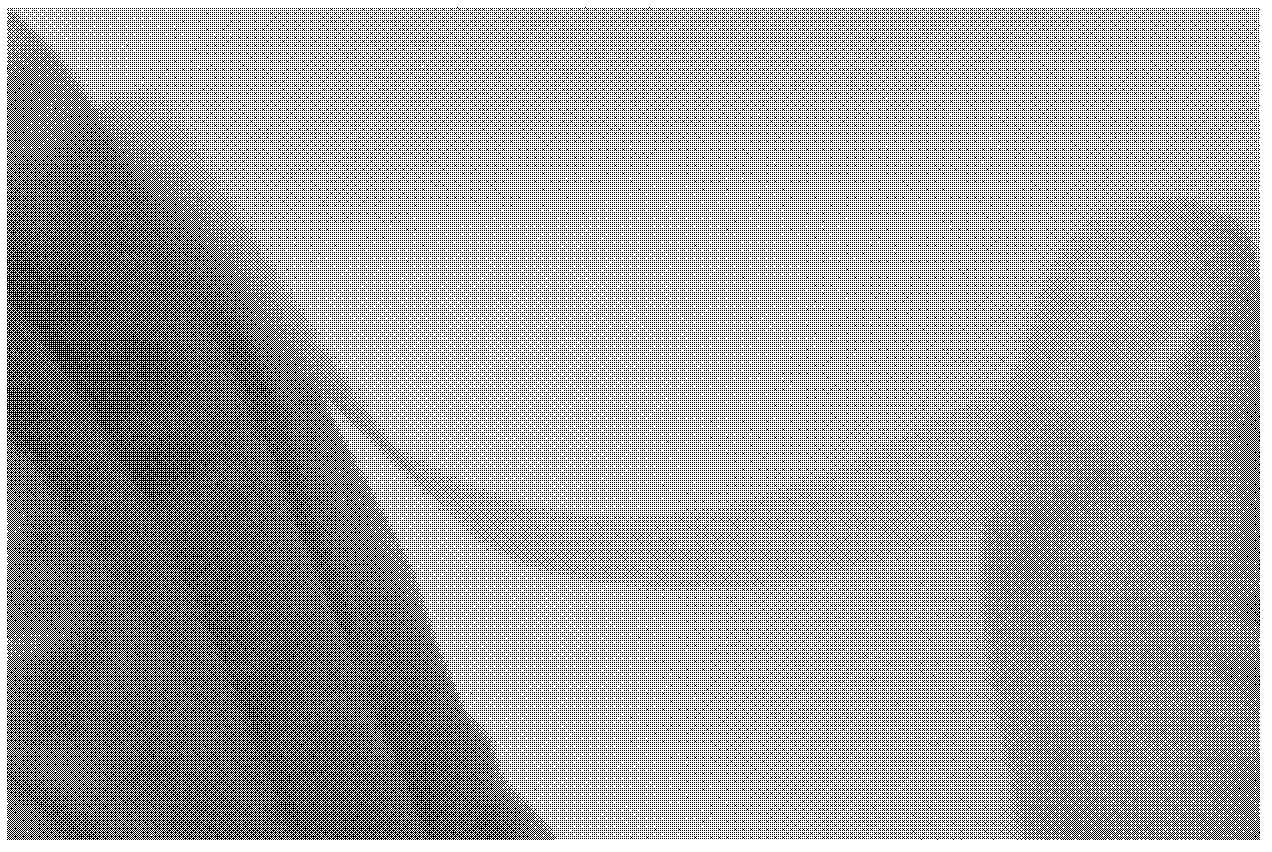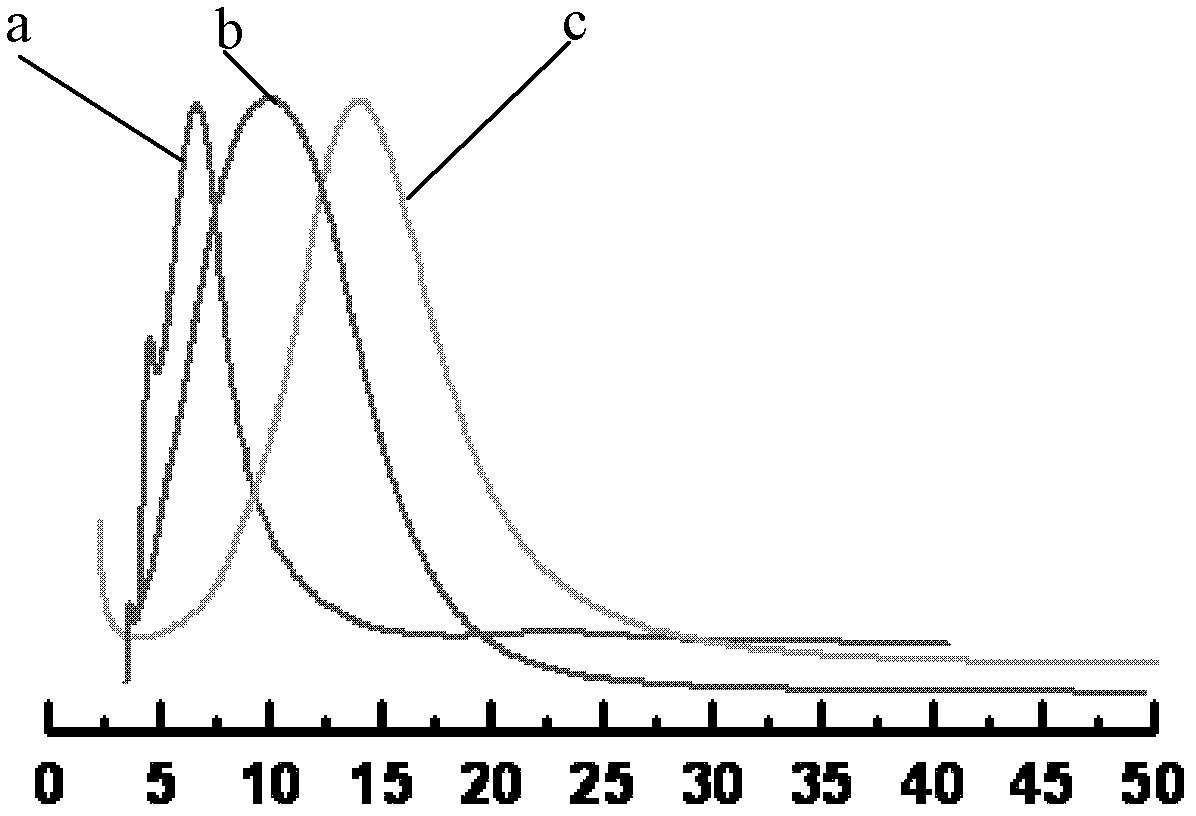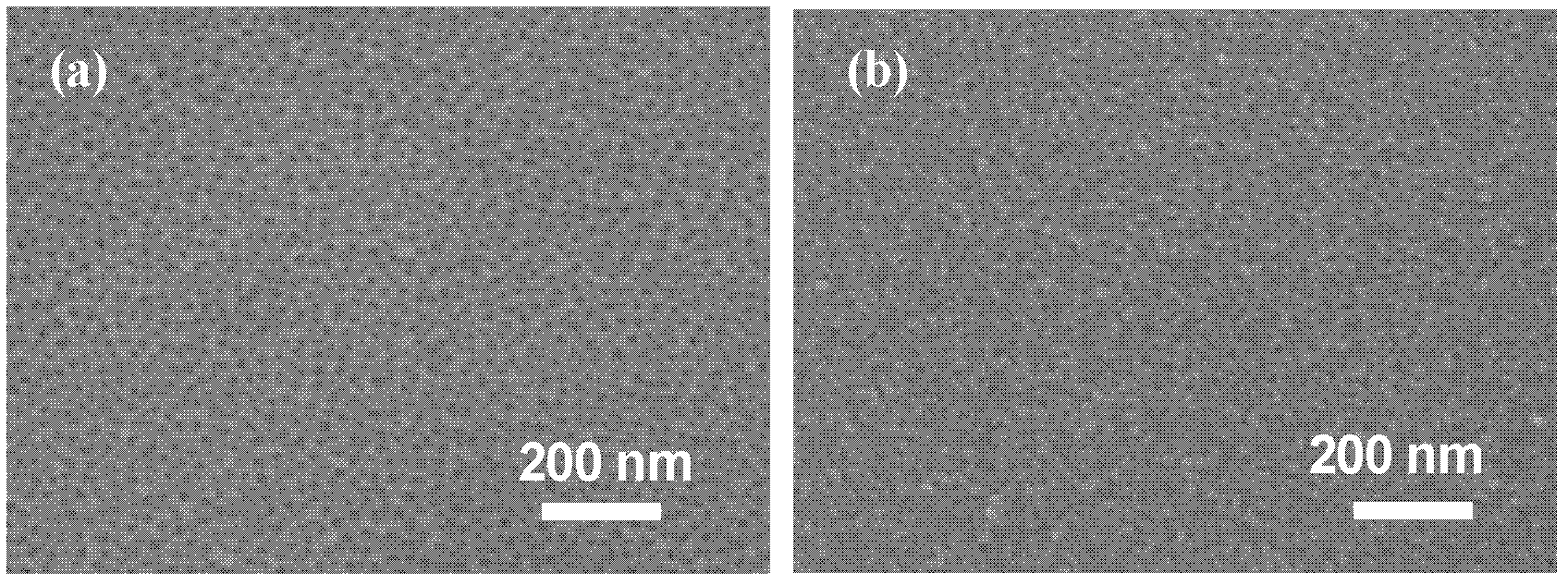A preparation method of through-hole anodic aluminum oxide film with controllable pore size and thickness
An anodizing aluminum and anodizing technology, applied in anodizing, electrolytic coating, surface reaction electrolytic coating, etc., can solve the problem of inability to obtain small pore size, ultra-thin, pore size and thickness through-hole anodic aluminum film, etc. High toughness, uniform pore size distribution and good chemical stability
- Summary
- Abstract
- Description
- Claims
- Application Information
AI Technical Summary
Problems solved by technology
Method used
Image
Examples
Embodiment 1
[0033] (1) The high-purity aluminum sheet (purity of 99.99 wt%) was ultrasonically cleaned with acetone for 3 minutes and then immersed in a 2M sodium hydroxide solution for 3 minutes to remove grease and oxides on the surface of the aluminum sheet.
[0034] The aluminum sheet used is strip-shaped, and the anodic aluminum oxide film prepared at one time is the front and back sides of the aluminum sheet (that is, two sheets), and the pore structure of the two sheets is exactly the same.
[0035] (2) The processed aluminum sheet in step (1) is used as an anode, and it is anodized in a 30wt% sulfuric acid solution at -10°C with a constant voltage of 5V direct current for 5 hours.
[0036] (3) The alumina obtained after the treatment in step (2) is immersed in a mixed aqueous solution of 1.8 wt% chromium trioxide and 6 wt% phosphoric acid at 60°C for about 20 minutes to remove the oxide layer.
[0037] (4) After the aluminum sheet treated in step (3) is washed with deionized water, it is a...
Embodiment 2
[0041] (1) Repeat step 1 in Example 1.
[0042] (2) The processed aluminum sheet in step (1) is used as the anode, and it is anodized in a 30wt% sulfuric acid solution at -8°C with a 7.5V direct current constant voltage for 2 hours.
[0043] (3) The aluminum oxide obtained after the treatment in step (2) is immersed in a mixed aqueous solution of 1.8 wt% chromium trioxide and 6 wt% phosphoric acid at 60° C. for about 30 minutes to remove the oxide layer.
[0044] (4) After the aluminum sheet treated in step (3) is washed with deionized water, it is anodized again under the same conditions as in step (2) for 3 hours.
[0045] (5) Step (4) The treated alumina membrane is put into perchloric acid acetone stripping solution (volume ratio is 1:1), 12.5V DC constant voltage is applied, and anodic electrolytic stripping treatment is performed at room temperature for about 5 Within seconds, a through-hole, ultra-thin, independent anodic aluminum oxide film can be obtained. The pore diameter ...
Embodiment 3
[0048] (1) Repeat step 1 in Example 1.
[0049] (2) The processed aluminum sheet in step (1) is an anode, and is anodized in a 15 wt% sulfuric acid solution at 0° C. at a constant voltage of 10V direct current for 2 hours.
[0050] (3) The aluminum oxide obtained after the treatment in step (2) is immersed in a mixed aqueous solution of 1.8 wt% chromium trioxide and 6 wt% phosphoric acid at 60° C. for about 30 minutes to remove the oxide layer.
[0051] (4) After the aluminum sheet treated in step (3) is washed with deionized water, it is anodized again under the same conditions as in step (2) for 3 hours.
[0052] (5) Step (4) The treated alumina membrane is put into perchloric acid acetone stripping solution (volume ratio is 1:1), 15V DC constant voltage is applied, and anodic electrolysis stripping treatment is performed at room temperature for about 5 seconds Clock, through-hole, independent anodic aluminum oxide film can be obtained. The pore diameter at the top of the membrane ...
PUM
| Property | Measurement | Unit |
|---|---|---|
| thickness | aaaaa | aaaaa |
| thickness | aaaaa | aaaaa |
| thickness | aaaaa | aaaaa |
Abstract
Description
Claims
Application Information
 Login to View More
Login to View More - Generate Ideas
- Intellectual Property
- Life Sciences
- Materials
- Tech Scout
- Unparalleled Data Quality
- Higher Quality Content
- 60% Fewer Hallucinations
Browse by: Latest US Patents, China's latest patents, Technical Efficacy Thesaurus, Application Domain, Technology Topic, Popular Technical Reports.
© 2025 PatSnap. All rights reserved.Legal|Privacy policy|Modern Slavery Act Transparency Statement|Sitemap|About US| Contact US: help@patsnap.com



